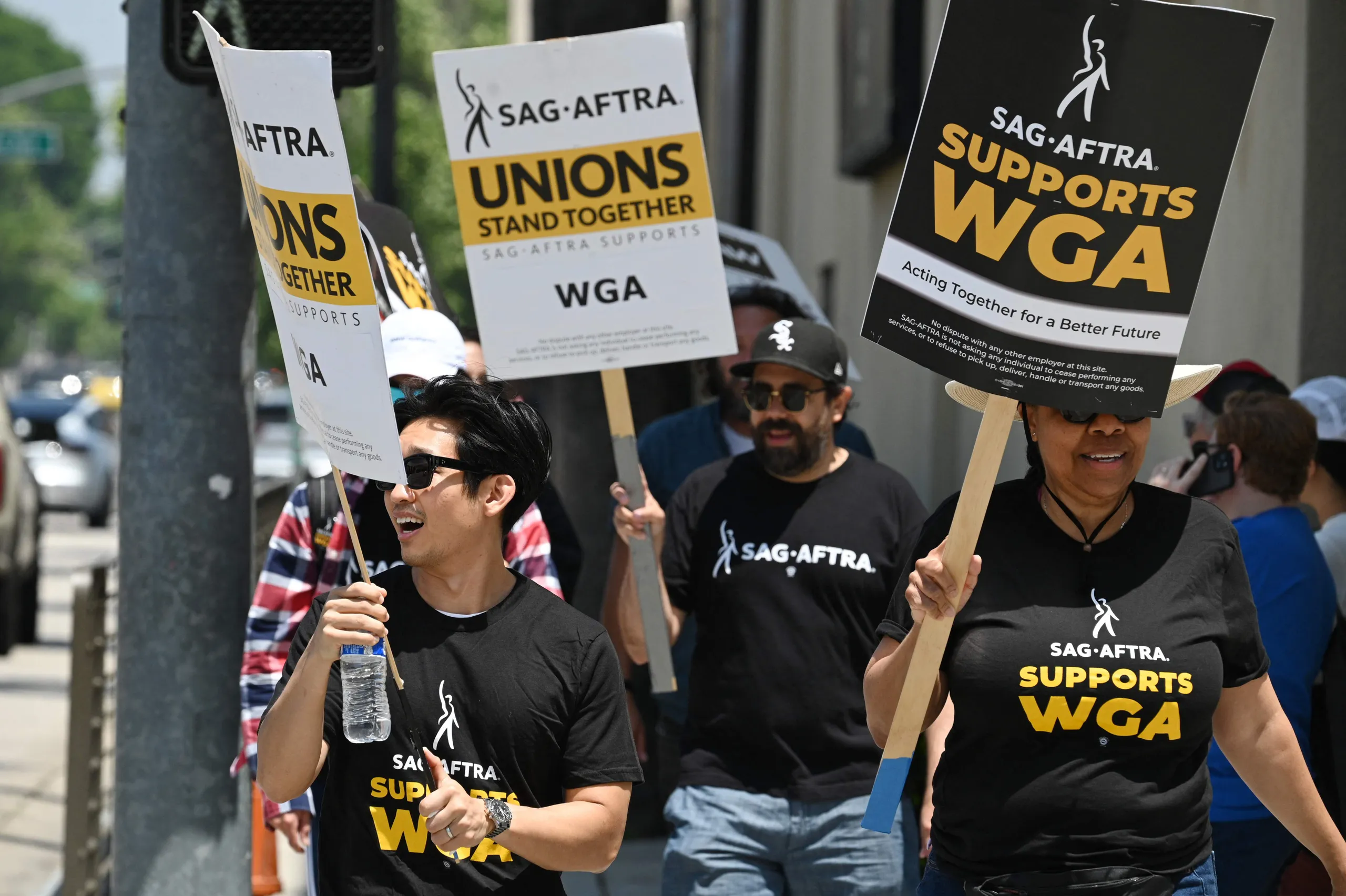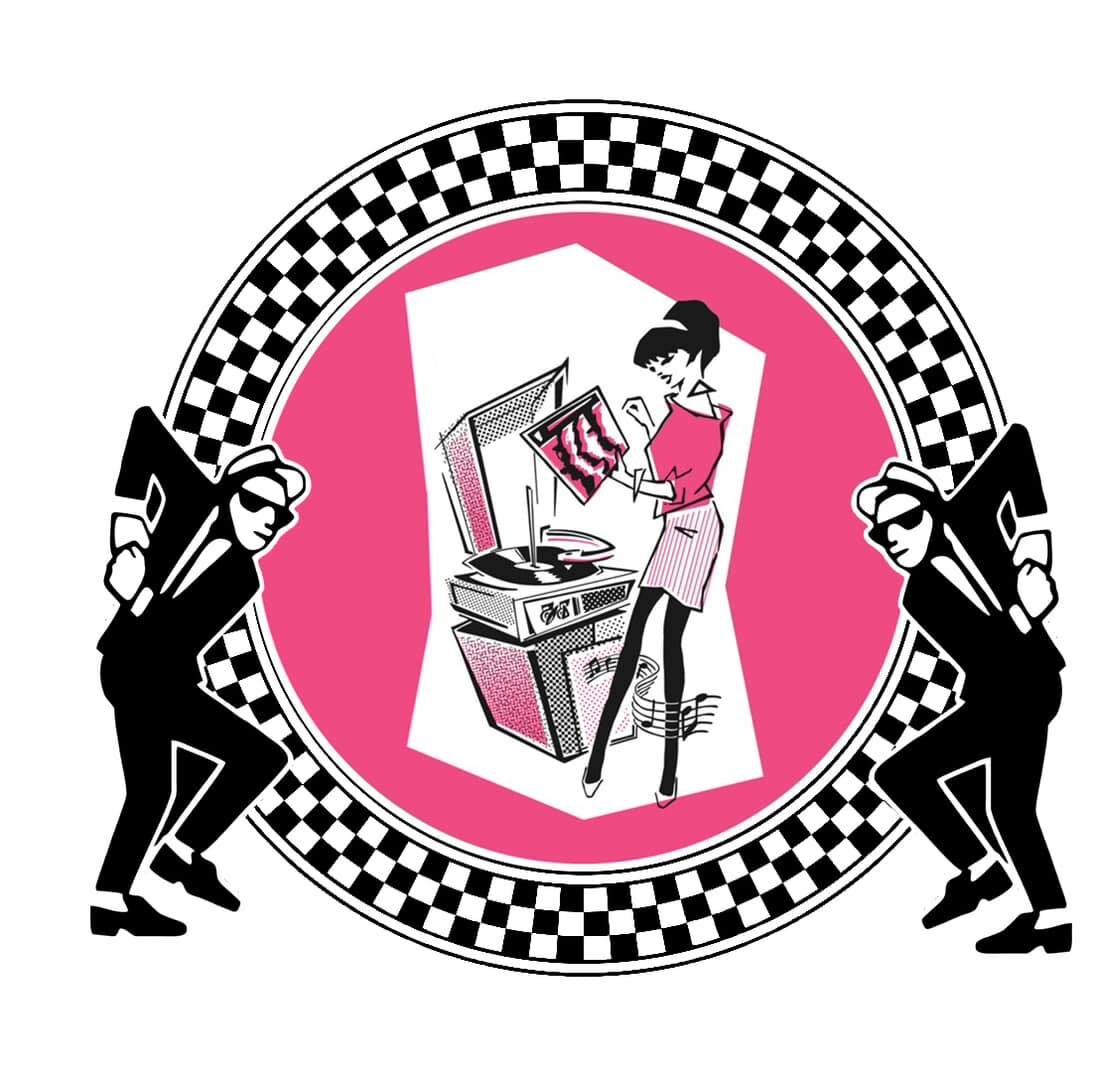The Hollywood actors' union is on the verge of a virtual shutdown of the American film and TV industry. After a month of tense negotiations between SAG-AFTRA and the major studios, talks collapsed at the midnight (PDT) deadline Wednesday, and the union's negotiating committee unanimously recommended a vote by its national board to call a strike, joining movie and TV writers, who walked out May 2.
The vote was held yesterday, and a formal announcement by the actor’s union was expected at noon PDT; both sides had already extended talks by 12 days after their initial contract expired June 30. In a statement, the union's negotiating committee said the studios remain "unwilling to offer a fair deal on the key issues that are essential to SAG-AFTRA members," and blamed "intransigence and delay tactics" by the Alliance of Motion Picture and Television Producers for its unanimous recommendation.
Actress Fran Drescher, the SAG-AFTRA's president, said the studios' "responses to the union’s most important proposals have been insulting and disrespectful of our massive contributions to this industry." For its part, the studio group shifted blame to actors for walking away from talks and said it had offered "historic" pay increases and other benefits.
"This is the Union’s choice, not ours ... rather than continuing tonegotiate, SAG-AFTRA has put us on a course that will deepen the financial hardship for thousands who depend on the industry for their livelihoods." The actors will join the striking Writers Guild of America, whose members have been on the picket line since May 2, in shutting down production for much of the American film and television industry.
Now, any remaining projects still being filmed without writers' involvement will be shuttered, further delaying TV shows and movies that haven't already been completed. This marks the first time in 63 years that both Hollywood actors and writers have been on strike simultaneously.
Commercial actors last walked off the job for six months in 2000, while the last strike by film and theatrical actor members of SAG lasted all of 14 hours, way back in 1986. The writers staged a 100-day walkout in 2007-08. The rise of streaming services, the advent of artificial intelligence technology and greater economic headwinds have changed how actors are paid.
Actors want more money, for starters. They argue their pay has been undercut by inflation and the streaming ecosystem, and they want regulated use of artificial intelligence, better benefit plans and money for "self-taped auditions," which casting and production departments once paid for.
Although Drescher and chief negotiator Duncan Crabtree-Ireland sent a hopeful message to the membership on June 24, the talks were not as successful as they suggested. On June 28, an open letter from more than 1,000 SAG members was sent to the union's leadership.
The letter, signed by Meryl Streep, Jennifer Lawrence and other big stars, expressed the membership's sincere willingness to strike if they were not able to achieve all demands in a new contract. On Tuesday, with just a day to go until the deadline, SAG-AFTRA agreed to "the AMPTP’s last-minute request for federal mediation," which was too last minute to make much of a difference.
The actors will join the writers on picket lines at a transformational moment in the entertainment industry. The WGA is asking for a guaranteed minimum number of writing staffers, increased royalties for streaming TV shows and movies and the regulated use of AI. Actors share many of the same concerns and demands.
The studios reached a deal with a third major Hollywood union, the Directors Guild of America, that was ratified by its membership on June 24. But that settlement did not move either the writers or actors toward an agreement with the studios.
Although many American film and TV sets were already shut down in May without writers, losing actors will bring worldwide production to a standstill, delaying series including HBO's "House of the Dragon" and films such as "Mission: Impossible – Dead Reckoning Part Two." The strike could also delay or cancel the Emmy Awards, currently scheduled for September, and depress the lineup at San Diego Comic-Con this month, usually an event full of A-list Hollywood actors, writers and directors.












